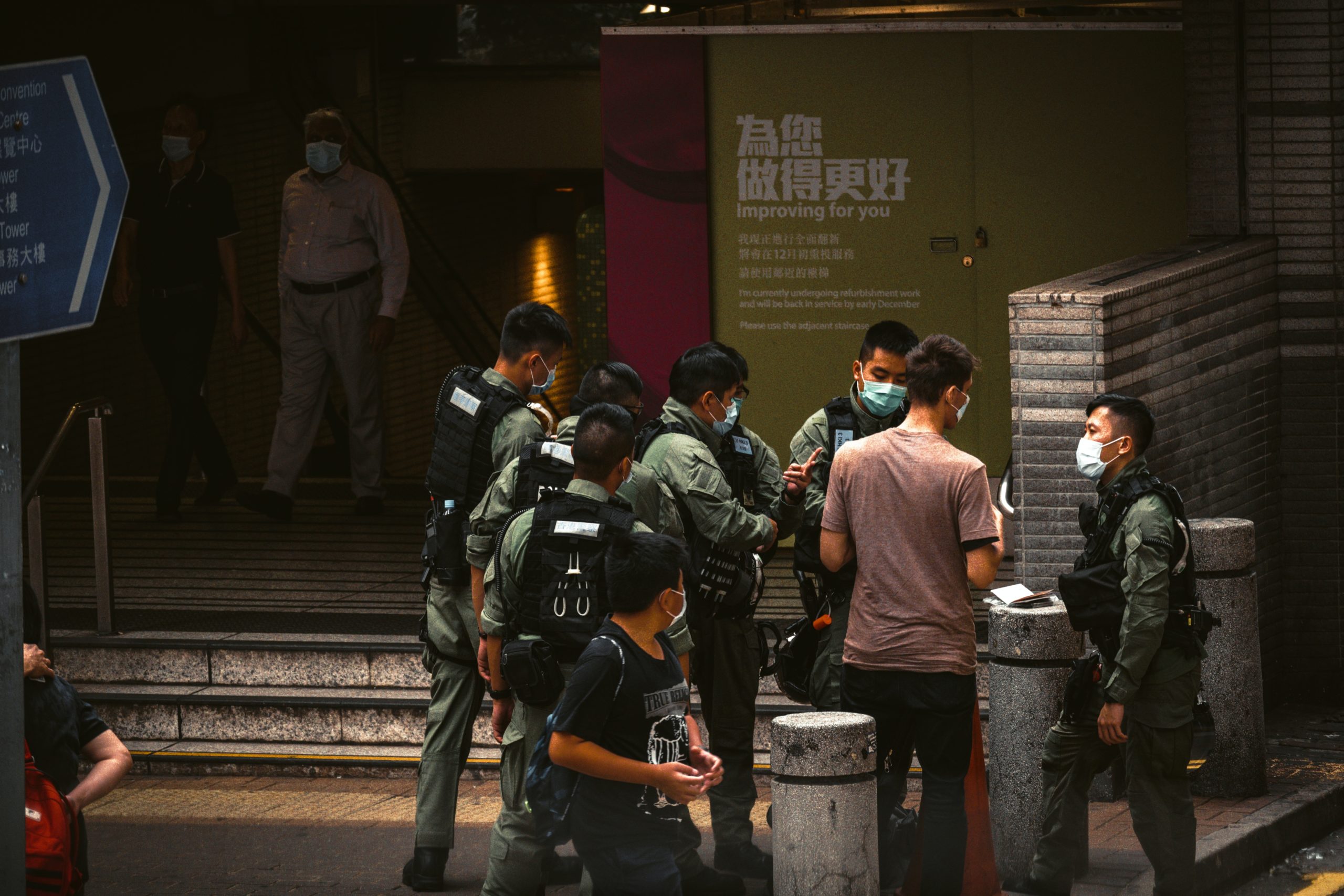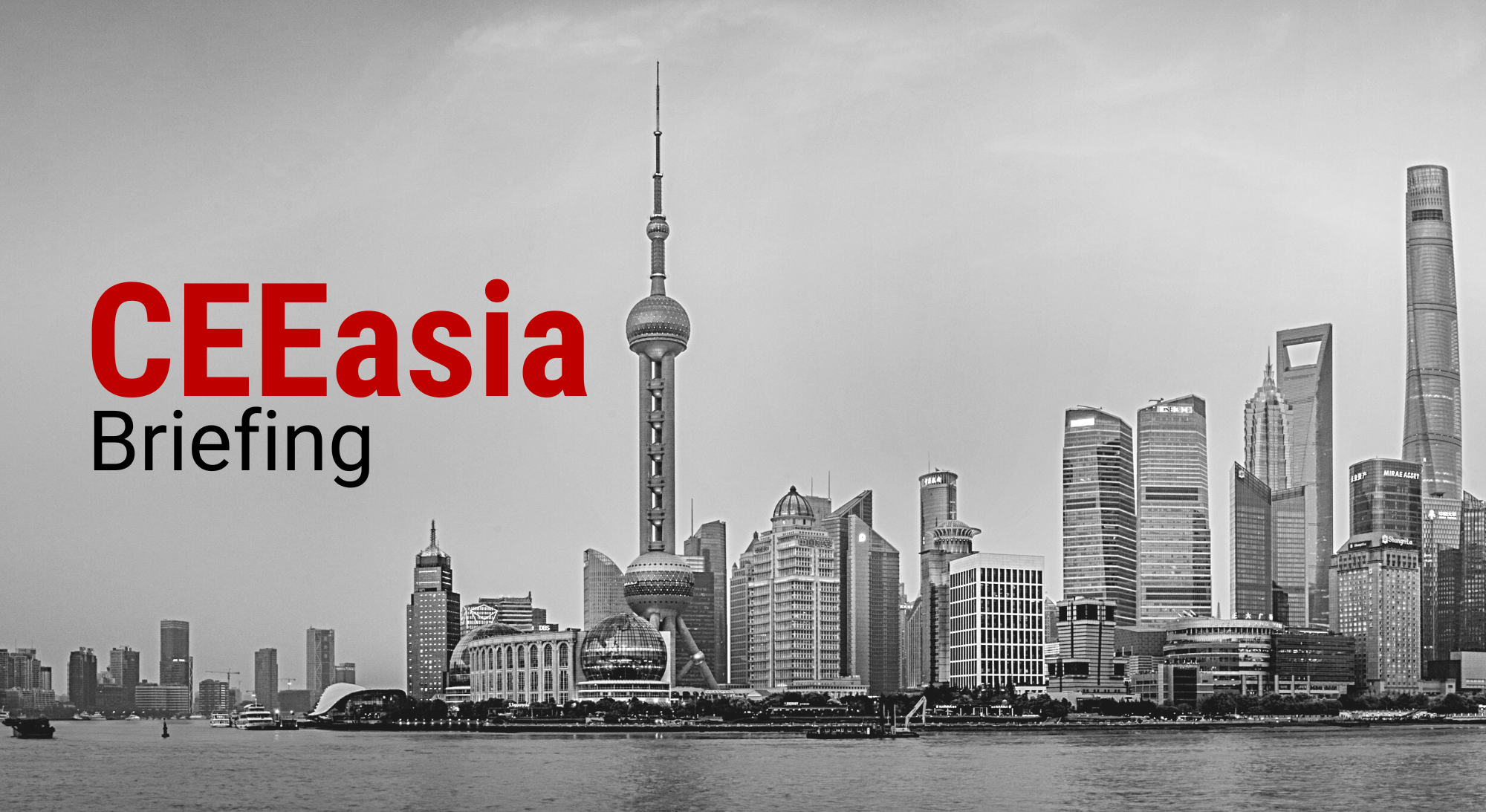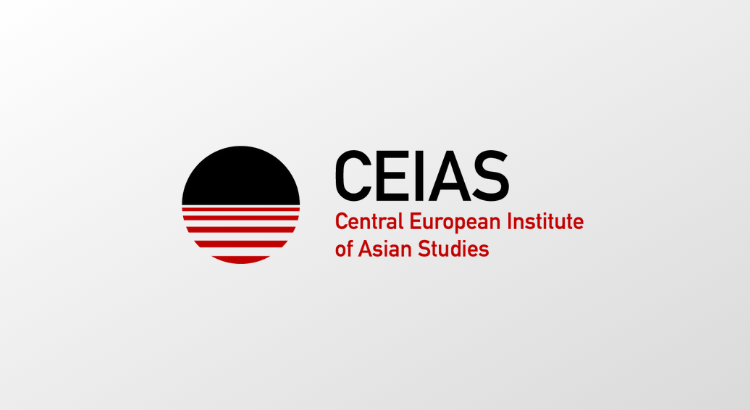China has been trying to control narratives on the Hong Kong protests in the Czech Republic, Poland, and Slovakia. The results have been mixed at best.
On August 19, the Center against Terrorism and Hybrid Threats, an agency of the Czech Interior Ministry, tweeted that since 1989 the term “erroneous opinions” is no longer used in the Czech Republic where the Constitution guarantees freedom of expression, and thus anyone operating in the Czech territory should respect the rules laid down in the Constitution.
The Center’s unusual statement was a reaction to an attempt of the Chinese Embassy in Prague to put an end to statements of the Czech politicians, journalists and other persons of public life supporting Hong Kong protesters. Yet, the Chinese attempt to fight the “erroneous opinions” is not limited to Czechia only. Similar attempts were recorded also elsewhere in Central Europe.
Pushing the ‘correct’ facts
Notable is the case of Slovakia, where the local Chinese Embassy sent out a document presenting the “facts” about Hong Kong to local media. As it turned out, the Slovak letter was a shortened version of a similar document produced by the Chinese Foreign Affairs Ministry on August 20. The original 42-page document, which listed ‘facts’ about the situation in Hong Kong, was sent to more than 30 international media outlets (e.g. Reuters, Bloomberg, BBC, Wall Street Journal, Asahi Shimbun, etc.) to influence media discourse in favor of Beijing.
Similar to a rather shy international reaction to the document, a Slovak version was refused to be published by the local media. None of the major media outlets in Slovakia published the embassy’s article, which presented the Hong Kong protests as violent and illegal and likened them to a color revolution organized by foreign forces. Only one marginal news portal, the leftist Nové Slovo, published the article signed by Lin Lin, China’s Ambassador to Slovakia.
If you can’t get published, buy yourself some ad space
Even though the Chinese propaganda on Hong Kong did not spread through Slovak media organically, China managed to sneak the message into the mainstream discourse by buying ad space in a major economic magazine Trend where it published an advertorial on Hong Kong.
In the article titled ‘China upholds the one country, two systems principle, foreigners shouldn’t intervene into its internal affairs’, Ambassador Lin accused the protesters of terrorism and indicated that the protests are supported by foreign powers. According to Tomáš Skřivánek, editor-in-chief of the magazine, the editorial office had no influence over the content of the advertisement.
The fact that the advertorial was published in Trend was later abused by the Chinese for domestic propaganda. The advertorial occurred at the Chinese Embassy’s website, claiming that Lin Lin’s article was published by a “mainstream magazine” in Slovakia. Any mention of it being a paid advertisement is missing from the website. Even the photography which is attached to the article on the Chinese Embassy’s website had the label indicating it was a PR article removed. The article from the embassy’s website was republished also by the news portal Sina, which is a part of a popular social network Weibo with 462 million active users as of December 2018.
The promotion of an advertorial beyond Slovak borders and its aiming at China’s domestic population makes sense. Activities of Chinese diplomacy in the world are subject to the main goal of Chinese communists, which is to preserve the rule of the Communist Party. The Chinese Communist Party draws its legitimacy from achieving socio-economic growth and from nationalism, with which the Hong Kong problem – as well as Tibet, Xinjiang, Taiwan, and South China Sea – is deeply connected.
Silence is golden
Interestingly, while China spread its views on the Hong Kong protests in Slovakia and Czechia, the same confrontational rewriting of the narrative has not be found in Poland.
On 19 August, the Polish Foreign Minister Jacek Czaputowicz publicly expressed solidaritywith the protestors in Hong Kong. Typically, China is quick to react and denounce anyone making critical comments on China and its core interests. In the case of Czaputowicz, China surprisingly remained silent.
Even the general communication style of the Chinese Embassy in Poland on Hong Kong protests is markedly different from that of its counterparts in Slovakia and Czechia. Other embassies described the Hong Kong protests as a “color revolution” incited by foreign forces. The embassy in Warsaw has instead focused on the future of Hong Kong. At the beginning of August, the embassy published a commentary on its website where it focused on the need for restoring stability and rule of law in Hong Kong. Provided the stability is restored, the embassy was convinced that “with the help of Belt and Road Initiative, the Greater Bay Area project and other national development strategies, the Pearl of the Orient will shine even brighter and its future will be painted in bright colors!”
Producing mixed results
Indeed, China has been using various tools to influence the media and political discourses on Hong Kong in several countries of Central Europe. The Slovak example serves to illustrate how media discourse can be manipulated even if editorial offices in general are resilient to Chinese influence.
Moreover, the different approaches used by the Chinese embassies in Poland, Slovakia, and Czechia suggest that these actions are not coordinated from Beijing but rather originate from within the embassies themselves. Due to the lack of central coordination, beyond providing embassies with general talking points, the embassies can alter their strategies and tailor them better to the local context. It appears that the Chinese Embassy in Warsaw took the opportunity of this and attempted to influence the local discourse by engaging in less confrontational tactics. It remains to be seen whether this approach will yield better results compared with Czechia and Slovakia.
However, the Czech case, where the Chinese Embassy has been systematically labeling any voice of support for Hong Kong protests as “erroneous opinions” illustrates the lack of sensitivity to the local context on part of the Chinese representatives. As the reaction of the Czech Center against Terrorism and Hybrid Threats shows, attempts of a communist regime to hinder freedom of expression in the post-communist Central Europe will not be met with enthusiasm.
The approach of the Chinese Embassy in Slovakia was also counterproductive. While generally, China is not an important topic in the local political discourse, publishing of the paid advertorial provoked a substantial backlash from the Slovak media, which covered the issue of Trend’s advertorial quite critically. To prevent future abuse of advertorials, the Central European media should themselves devise transparent rules (e.g. in their Codes of Ethics) which will regulate the selling of ad space (especially for advertorials) to foreign governments, their agencies, and representatives.
The recent cases show that China is unable to fundamentally alter the mainstream media discourse in Central Europe. This is because its influencing tactics are in direct contradiction with the basis of the Central European identity. The post-1989 Central European identity has been largely built around the rejection of Communism. By using methods that remind the public in the Central European countries of their Communist past, China is attacking the very basis of the local peoples’ identity.
Unless China changes its approach, its influence campaigns, be it on Hong Kong or other issues, will not result in a substantial change of the public opinion in the region of Central and Eastern Europe.
Matej Šimalčík is Executive Director of CEIAS and member of CHOICE. This article was written for China Observers in Central and Eastern Europe (CHOICE) and is reprinted with a permission







